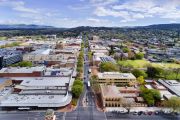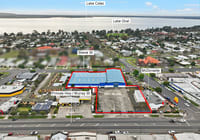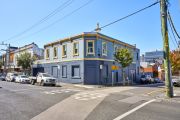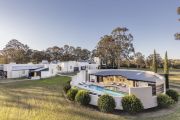
Real estate now takes 1 in 5 Japanese deals – and it’s growing
Real estate transactions involving Japanese investment in Australia boomed last year, making up one in every five deals, as Japan’s push to find new markets coincided with Australia’s increasing need for capital, Herbert Smith Freehills’ Japan-Australia Investment Report 2024 shows.
The sector chalked up 14 of last year’s 72 transactions – up from a total 53 in 2023 and the most of the eight annual reports to date. It will remain the hottest this year as a new generation of investors, having learned from mistakes of the 1980s and 90s, focuses on quality property assets, the law firm’s latest report says.

At a time of global uncertainty – after the Trump administration’s decision last week to impose tariffs on trade partners across the world – Australian commercial and residential real estate is finding its perfect match in Japanese investors seeking stable rental revenue streams and capital growth.
“It’s a bit of a tipping point with all the partnerships happening,” Mitchell Schauer, investment bank Jarden’s managing director and head of real estate corporate finance, told The Australian Financial Review.
“There’s a really live question and uncertainty around US geopolitical and policy issues and whether it might be a net benefit for Australia because of a perceived relative stability and geopolitical closeness to Japan.”
Energy still key to relationship
Japan’s $3 billion-worth of real estate investment in each of the past two years equals its total cumulative investment over the previous 22 years, separate MSCI data shows.

Notable real estate deals last year included Mitsui Fudosan’s $1.3 billion acquisition of a two-thirds stake in Mirvac’s planned 55 Pitt Street office tower in Sydney and Sumitomo Forestry’s $115 million buy of a majority stake in Metricon, the country’s biggest home-builder.
But even as growing activity made this country Japan’s second-largest destination for real estate last year after the US (where the total was $US2.6 billion, according to MSCI), energy investments still dominated.
JERA, Japan’s largest importer of liquefied natural gas, took a $US1.4 billion ($2.2 billion), 15.1 per cent stake in the Scarborough LNG Project from Woodside Energy last year, while Nippon Steel and JFE Steel bought a collective 30 per cent of Whitehaven Coal’s Blackwater coking coal mine in Queensland’s Bowen Basin for $US1.1 billion.
“Whether renewable or traditional energy, it’s still core to the Australia-Japan relationship,” said report author HSF senior adviser Ian Williams, chairman of Asahi Kasei Homes-majority owned NEX Building Group.
At a time when many mooted hydrogen projects have fallen over, deals were few. The report flagged just one, a $200 million partnership led by ENEOS to build a hydrogen demonstration plant at Bulwer Island in Brisbane.

Hydrogen-related investments would pick up, but a growing number of Japanese companies was seeing the path to decarbonisation by hydrogen via renewable energy projects, such as wind, solar, battery storage and pumped hydro, Williams said.
“Commercially it’s difficult at the moment,” he said. “There’s no doubt the opportunity is there. There isn’t quite a market created yet and the technology is a bit delayed from the original 2030 aspirational target.”
Japanese banks and finance houses increased their exposure to the Australian economy over the year, putting the three mega banks – Mitsubishi UFJ Financial Group, Mizuho Financial Group and Sumitomo Mitsui Banking Corporation – “just behind” Australia’s big four banks in terms of market presence in the corporate and institutional banking sector, the report says.
SBI Shinsei Bank increased its stake in non-bank lender Latitude Financial Services to 19.3 per cent from 17 per cent during the year.
Japanese banks weren’t beating out Australian banks for deals, as their risk profiles and strategies were different – Japanese banks tended to focus on large projects and syndicate loans with many other parties, Williams said.
Searching for partners
Australian real estate companies were increasingly looking for capital in Japan partly because this country’s big four were playing less of a role in commercial real estate lending than they had, Williams said.
“The leading Australian real estate companies are scouring Japan for partners to invest,” he said. “Japanese capital tends to be more patient and forming joint ventures allows them to do more projects.”
Japanese investment in real estate was evolving, with the first wave of very large companies such as Mitsui Fudosan, Mitsubishi Estate and Daiwa House followed by a second tier of smaller investors and, increasingly a third tier of even smaller ones, he said.
“We’ve had a number looking at $50 million and then they’re getting a third wave of Japanese companies looking to take $10 million to $20 million [stakes],” Williams said. “They don’t want to be managing the acquisition.”
Many investors started off with a small exposure, but would increase it over time as their comfort level with the market grew and, in turn, put their own development skills to use in this country, Jarden’s Schauer said.
“They really want to bring their considerable experience and capabilities from the domestic Japanese market and export that into overseas markets,” he said. “Ultimately, that’s very good for Australia.”
Other notable property deals during the year included the $536 million purchase by Hankyu Hanshin Properties and Malaysia’s Kumpulan Want Persaraan of a stake in a portfolio of 11 logistics assets from ESR and partner ADIA – a deal Jarden advised the vendors on.
Separately, Kanden Realty & Development purchased residential land in Leppington in Sydney’s south-west and Tarneit in Melbourne’s west, as well as a stake in a 475-unit build-to-rent project in Brisbane with Cedar Pacific. The values were not disclosed.











